HAPPY CAT
Happy Cat - Sensitive Kidney Diet
Happy Cat - Sensitive Kidney Diet
Couldn't load pickup availability
- 72 % animal protein (based on total protein
- Wheat-free and gluten-free recipe
- Adapted protein and mineral content
- Increased dietary fibre content reduces stress on the kidneys.
- Suitable from 1 year
- Enriched with birch and stinging nettle.
Share
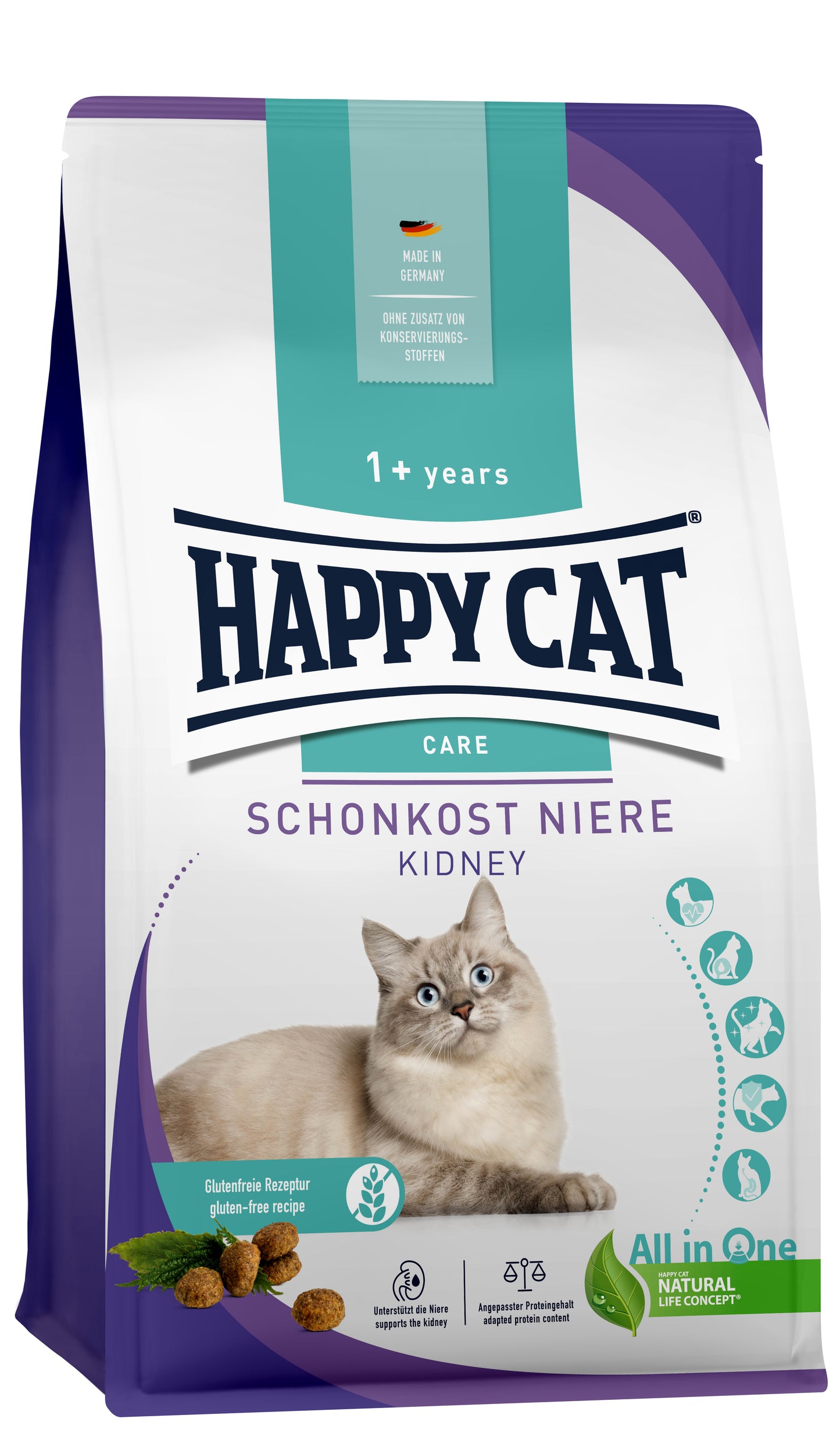
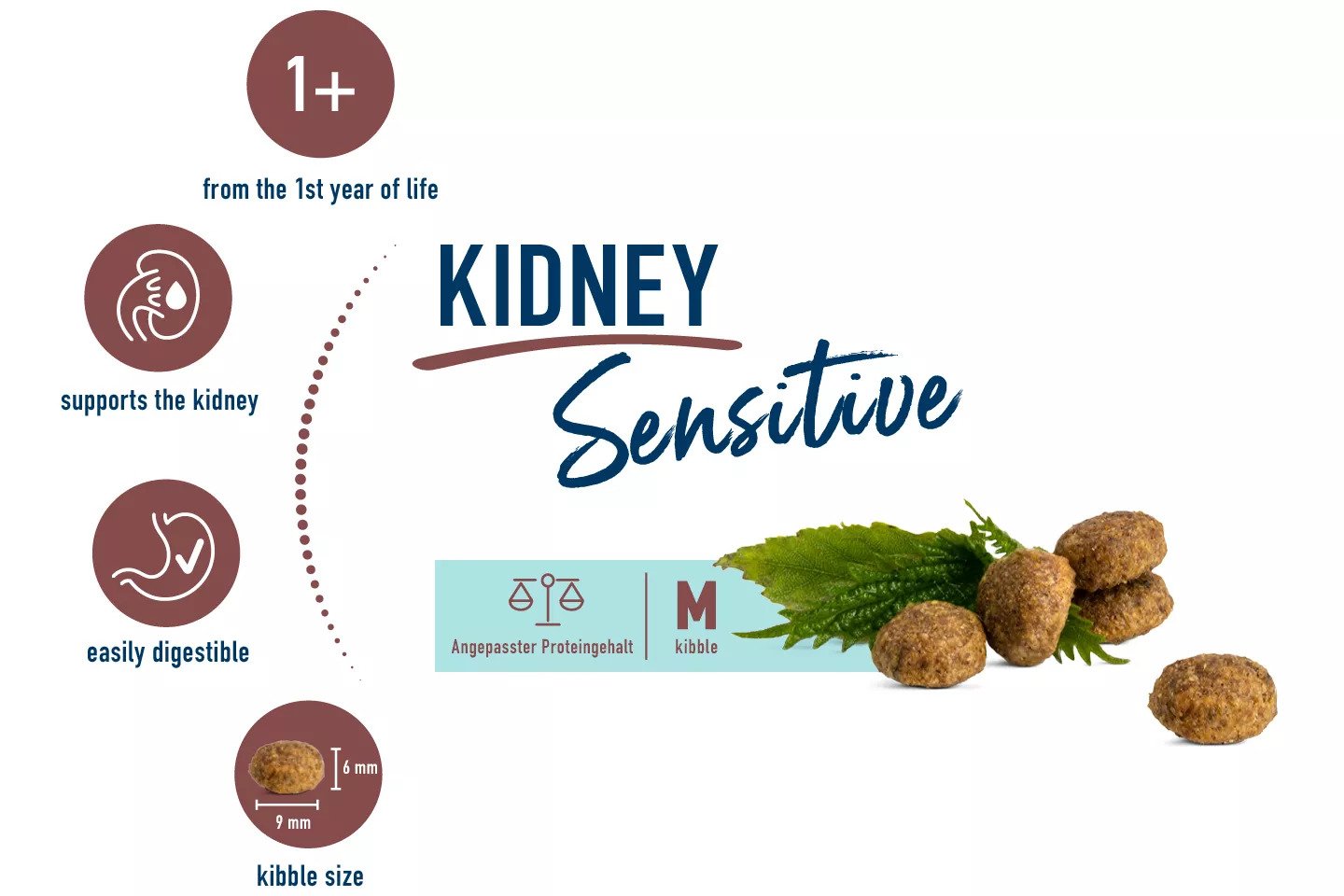
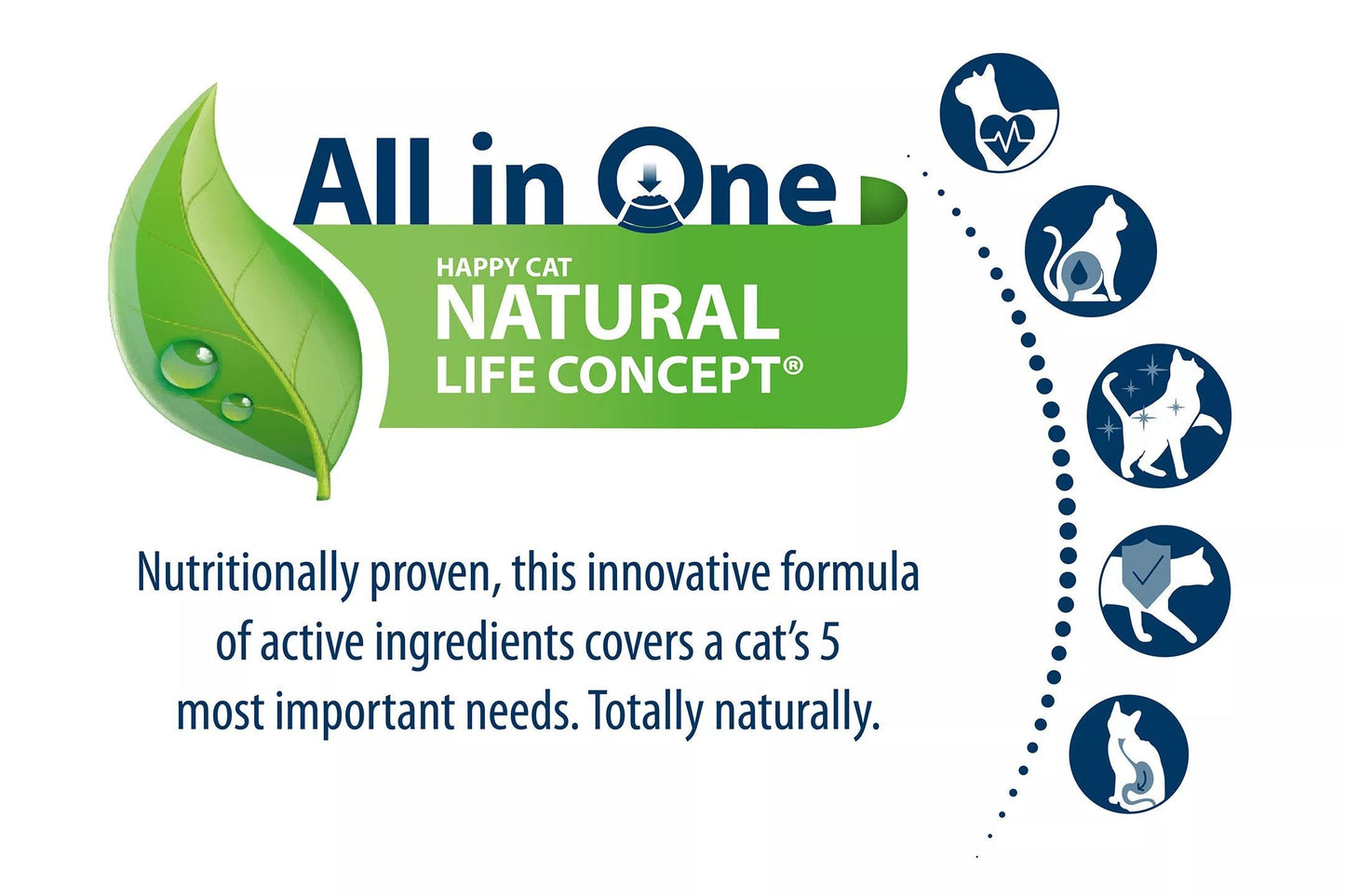
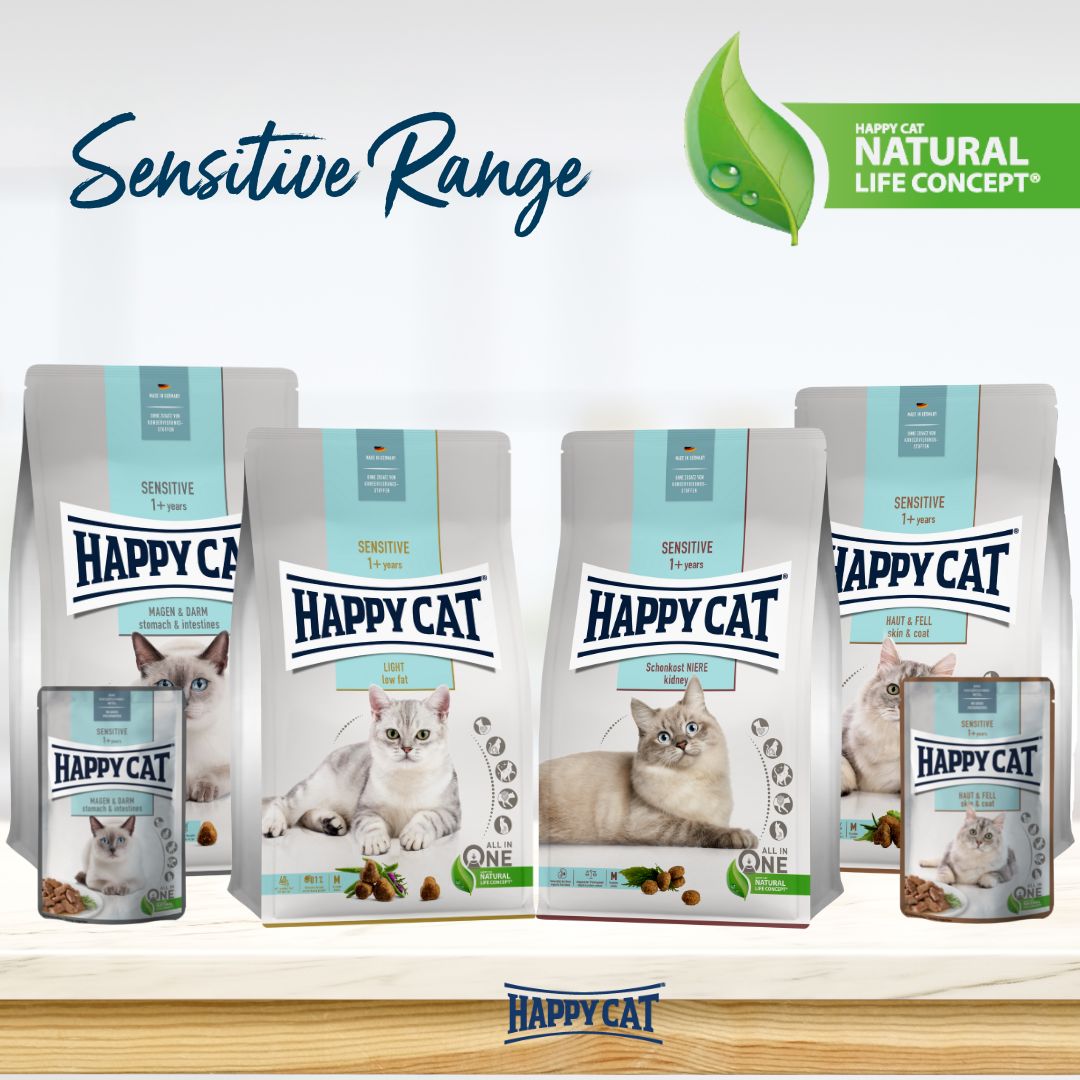
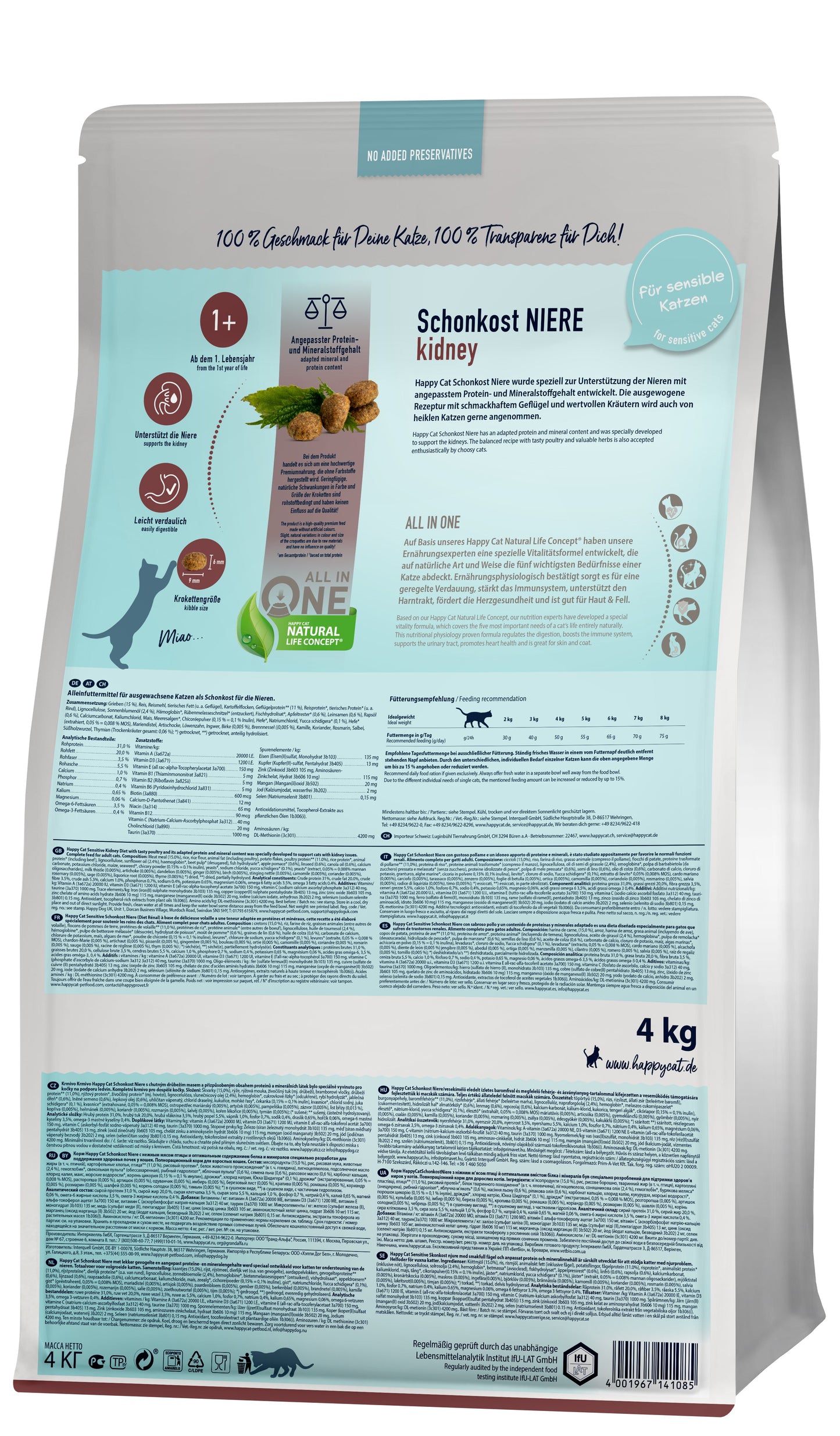
Happy Cat - Sensitive Kidney Diet
Sensitive Kidney Diet
Dietary complete feed for cats for support of renal function in case of chronic renal insufficiency.
Happy Cat Kidney with its adapted protein and mineral content was specially developed to support kidney function. The balanced recipe with poultry and meat meal as protein sources along with valuable herbs is also well accepted by choosy cats.
This dietary food features:
- 72 % animal protein (based on total protein
- Wheat-free and gluten-free recipe
- Adapted protein and mineral content
- Increased dietary fibre content reduces stress on the kidneys
- Suitable from 1 year
- Enriched with birch and stinging nettle
Happy Cat Sensitive Kidney is especially suitable for feeding cats in the early stages of renal insufficiency. Please note that this diagnosis MUST be confirmed and explained by your vet.
What is renal insufficiency?
Renal insufficiency means that the kidney function is limited and the kidneys are no longer able to perform their full scope of their tasks. The kidneys keep the cat’s fluid and electrolyte levels in equilibrium. Their main task is to eliminate water, salts and metabolised waste products. They also help with blood cell production and can influence the blood pressure. The blood is filtered in the renal corpuscles and toxins are output via the tubules into the urine. In the case of renal insufficiency, metabolic waste products are no longer eliminated from the body sufficiently. Substances that can no longer be transported out of the body with the urine then collect in the blood. It is therefore especially important to support and avoid additional stress on the renal metabolism by providing a suitable diet.
What can you do if your cat with renal insufficiency doesn’t want to eat?
Cats with kidney damage frequently feel nauseous and so are often reluctant to eat. You will need to schedule a little more time for changing the food from a normal food to Happy Cat Kidney in order to make food consumption as pleasant as possible.
The following tips may help with changing the food and feeding cats with kidney disease:
- Choose the right bowl and dining area (e.g. wide, flat dish so that the whiskers remain free, quieter location)
- Offer the food at body temperature
- Identify stress factors and changes, and then eliminate or alleviate them
- Clean your cat’s food bowl regularly
- Check how you are storing the food
Collapsible content
Additives
Vitamins/kg:
vitamin A (3a672a) 17000 IU, vitamin D3 (3a671) 1000 IU, vitamin E (all-rac-alpha-tocopheryl acetate 3a700) 120 mg, vitamin C (sodium calcium ascorbyl phosphate 3a312) 30 mg, taurine (3a370) 1000 mg
Trace elements/kg:
iron (iron(II) sulphate, monohydrate 3b103) 75 mg, copper (copper(II) sulphate pentahydrate 3b405) 15 mg, zinc (zinc oxide 3b603 105 mg, zinc chelate of amino acids hydrate 3b606 10 mg) 115 mg, manganese (manganese(II) oxide 3b502) 20 mg, iodine (calcium iodate, anhydrous 3b202) 2 mg, selenium (sodium selenite 3b801) 0.25 mg
Antioxidant, tocopherol-rich extracts from plant oils 1b306(i)
Composition
Rice, oils and fats, meat meal (15 %), potatoes*, animal protein* (from poultry 7.5 %), rice protein* (7 %), lignocellulose, hydrolysed protein*, haemoglobin*, beet pulp* (desugared), calcium carbonate, apple pomace* (0.6 %), linseed (0.6 %), potassium chloride, maize, seaweed*, chicory powder (0.15 % = 0.1 % inulin), yeasts*, sodium chloride, yucca schidigera* (0.1 %), yeasts* (extract, 0.05 % = 0.008 % mannan oligosaccharides), milk thistle, artichoke, dandelion, ginger, birch (0.006 %), stinging nettle (0.006 %), camomile, coriander, rosemary, sage, liquorice root, thyme (total dried herbs: 0.06 %)
*) dried
Analytics constitutes
Crude protein 28.5 %, crude fat 20.0 %, crude fibre 3.5 %, crude ash 4.5 %, calcium 0.4 %, phosphorus 0.35 %, sodium 0.4 %, potassium 0.65 %, magnesium 0.06 %, omega 6 fatty acids 3.5 %, omega 3 fatty acids 0.4 %





